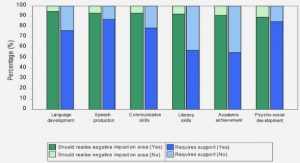Get Complete Project Material File(s) Now! »
THEORETICAL FRAMEWORK
INTRODUCTION
This chapter describes the theoretical framework used in this research. It starts by briefly exploring common IS research paradigms and discusses the limitations of existing theoretical frameworks. It introduces process orientation and describes how a Foucauldian genealogical approach can fit within a process orientation. It provides a critical research framework suitable to understand the issues observed over the course of the research. Please note that the term process orientation in this chapter is not the same usage as process orientation in BPM methodology.
Burrell & Morgan’s (1979) seminal work on paradigms in the social science proposed the existence of four mutually exclusive paradigms. The Functionalist Paradigm sees reality as concrete and immutable and knowledge the search for predictability and control though information about regularities and causal relationships and sees society as a system of regulation which is oriented to produce unity and cohesiveness and the satisfaction of human needs. It sees individual behaviour as contextually bound in a real, concrete and tangible world. It sees the researcher as a value-free fully rational observer whose motivation is the generation of useful empirical knowledge that improves the predictability of outcomes. The Interpretive Paradigm sees reality as socially constructed – a network of shared assumptions – and knowledge as the value laden search for relativistic understanding and like functionalism sees society as a system of regulation. It sees individual behaviour in the context of a social reality that is not concrete but is a shifting product of subjective experience. It sees the researcher as a participant in action producing knowledge which is every bit as problematic as any other form of knowledge. The Radical Humanist Paradigm sees reality as socially constructed and knowledge as the value laden search for relativistic understanding but sees society as system of radical change which is oriented to produce domination but contains intrinsic tensions and contradictions between opposing elements, which inevitably lead to radical change in the system as a whole. It sees individual behaviour as constrained and controlled by psychic and social processes. It sees the researcher as uncovering modes of domination in order to assist humans transcend their alienation. The Radical Structuralist Paradigm sees reality as concrete and immutable and knowledge the search for predictability and control though information about regularities and causal relationships and sees society as a system of radical change. It sees individual behaviour as constrained by the dominating force of society. It sees the researchers as working to understand the intrinsic tensions and the way that those in power hold the tensions in check.
The theoretical frameworks that inform IS research have expanded over time but fall broadly into one of three commonly accepted research paradigms: positivist, interpretive, and critical (M. D. Myers & Klein, 2011). These have their foundation in Accounting Research.
Hopper & Powell (1985) reduced the Burrell & Morgan paradigms to Functionalist, Interpretive and Radical collapsing Radical Humanism and Radical Structuralism into one category. They did this on the basis of their opinion that the subjective-objective dimension of Burrell & Morgan’s classification did apply to Functionalism and Interpretivism but much less clearly to Radicalism where some theorists incorporate both strands into their work.
Chua (1986) reviewed of the underlying assumptions of Accounting Research practice; her objective was to present the mainstream world view and two alternative world views. She rejected the Burrell Morgan framework for a number of reasons. First she did not agree with the use of the mutually exclusive dichotomies. Second she interpreted their description of inter-paradigmatic journeys as equivalent to a conversion experience in religious faith and as presenting the shift as irrational. Third she rejected the relativist view of truth and reason they were proposing and fourth she found the distinction between radical structuralist and radical humanist dubious. She described the metaphysical underpinnings of the Dominant or Mainstream word-view (equivalent to the Functionalist view) and introduced two alternative world views: Interpretive and Critical. She does not explain this shift of term in the paper from Radical to Critical but just makes the substitution eliminating the two dimensions. Just as she bases her description of Interpretive assumptions primarily in Schutz’ interpretive sociology, she bases her description of Critical assumptions primarily on Habermas with a background of Plato, Hegel and Marx. She also rejects Burrell & Morgan’s belief that the paradigms are mutually exclusive.
Chen & Hirschheim say that very little critical research has been published in IS (Chen & Hirschheim, 2004; W. J. Orlikowski & Baroudi, 1991).Hence Richardson & Robinson (2007) went in search of the ‘missing paradigm’. They found 31 published papers in IS that they classify as critical. They expressed some optimism for an increase in the number of critical papers.
Falconer (2008) defines papers as critical as those whose authors described them as having a modernist, emancipatory intent in the tradition of the Frankfurt School. He analysed 7072 papers from 10 top IS journals and on that basis for classification he found only 116 (1.6%) papers that reached a minimum standard of at least a mention in passing of critical research. Of these only 26 (0.4%) were empirical studies based on critical theory. Falconer agreed with (Brooke, 2002) that IS Critical research was generally limited to Habermas and the Frankfurt school.
While Burrell & Morgan clearly describe their work as an analytical scheme, a heuristic device and not a rigid definition, Deetz (1996) said it quickly became a grid that classified concepts as things and reified them. He also said, as result of the apparent paradigmatic incommensurability, it gave the illusion that a researcher using a methodology was fully and permanently committed to the paradigm to which the methodology was ascribed.
Deetz describes his own position as believing that paradigms only appear are incommensurable as they strive to maintain coherence, but become commensurable as soon as they make contact with the ultimately indeterminant outside world. While Burrell & Morgan warn against ontological oscillation, predominantly seen as the sudden shift from subjective ontological and epistemological stances suddenly becoming objective methodological stances Deetz says it is common because in fact, « Most researchers and teachers do not cluster around a prototype…but gather at the crossroads, mix metaphors, borrow lines from other discourses… happily move from one discourse to another without accounting for their own location…like other organisational members borrowing on discourses that suit their immediate purposes and the fashions of the moment » (Deetz, 1996, p. 199).
Deetz (1996) says that ontological oscillation is common. Weick (1995) defends it on the basis that it a legitimate way for researchers who study sense making to gain understanding of the actions of people in ‘everyday life’ where Weick reminds us people do not care about metaphysics, have multiple identities and deal with multiple realties.
The theoretical foundations of this research lie at the crossroads of all three paradigms, although it is mostly critical. This research started as AR combined with ethnography as input to the AR cycle. Baskerville & Myers (2004) suggest that the underlying philosophical position of most forms of AR is Pragmatism. This embraces ontological pluralism, encouraging multiple perspectives, and sees knowledge as socially created based on empirical evidence and rejects universal truths. Pragmatism sees theories as necessarily incomplete but useful for predicting, explaining and influencing change (Christ, 2010) . Coghlan & Brannick (2005) describe the ontological basis of AR as objectivist, like Positivism and the epistemological basis as subjectivist like Interpretivism.
Because of its reflexive nature and desire to utilise whatever tools are useful to solve the problem AR has been ‘promiscuous’ over the years. Whilst grounded in pragmatic philosophy it draws on critical thinking, the practice of democracy, liberationist thought, humanist and transpersonal psychology, constructionist theory and complexity theory (Reason & Bradbury, 2006).
Ethnography as a qualitative research method can be used with any of the research paradigms. Its use as a research methodology started as positivist but has also been utilised in interpretive and critical research (Atkinson, Coffey, Delamont, Lofland, & Lofland, 2001).
1INTRODUCTION
1.2 THE RESEARCH PROBLEM
1.3 THE VALUE OF THIS RESEARCH
1.4 CHAPTER SUMMARY AND THESIS OVERVIEW
2 LITERATURE REVIEW
2.1 CHAPTER OVERVIEW
2.2 BUSINESS PROCESS MANAGEMENT
2.3 BPM SUCCESS
2.4 BPM METHODOLOGY
2.5 PROCESS ARCHITECTURE
2.6 PROCESS REDESIGN
2.7 BPM AND ORGANIZATIONAL CULTURE
2.8 CHAPTER REVIEW
3.1 INTRODUCTION
3.3 FOUCAULDIAN ANALYTICS
3.4 USING THE THEORETICAL FRAMEWORK TO DEVELOP THE RESEARCH QUESTIONS
3.5 CHAPTER REVIEW
4 RESEARCH METHODS
4.1 INTRODUCTION
4.2 ACTION RESEARCH
4.3 ETHNOGRAPHIC RESEARCH
4.4 REFLECTIONS ON THE ACTION RESEARCH AND ETHNOGRAPHIC JOURNEY AT NATIONWIDE.
4.5 CHAPTER REVIEW
5 THE NATIONWIDE INSURANCE BUSINESS PROCESS MANAGEMENT PROJECT
5.1 HISTORICAL BACKGROUND
5.2 BUSINESS PROCESS IMPROVEMENT PROJECT BACKGROUND
5.3 PLANNING THE IMPLEMENTATION OF BPM AT NATIONWIDE
5.4 THE NATIONWIDE COMMERCIAL PILOT
5.6 THE NATIONWIDE CULTURAL TRANSFORMATION PROGRAM: A GENEAOLGY
5.7 HAPPY ENDINGS OCTOBER 2009 TO PRESENT
5.8 CHAPTER REVIEW
6 ANALYSIS OF THE NATIONWIDE BPM PROJECT
6.1 INTRODUCTION
6.2 A HISTORY OF INSURANCE
6.3 PASTORAL POWER AND SUBJECTIVITY AT NATIONWIDE
6.4 PASTORAL POWER AND DISCIPLINE AT NATIONWIDE COMMERCIAL
6.5 CULTURAL TRANSFORMATION AT NATIONWIDE: REINFORCING PASTORAL POWER AND
SUBJECTIVITY
6.6 ASSESSING THE REQUIREMENTS FOR CHANGE AT NATIONWIDE USING A POWER AND
PROCESS FRAMEWORK
6.7 CHAPTER OVERVIEW
7CONCLUSION
7.1 KEY FINDINGS
7.2 CONTRIBUTIONS TO THEORY
7.3 CONTRIBUTIONS TO PRACTICE
7.4 LIMITATIONS
7.5 FURTHER RESEARCH OPPORTUNITIES
7.6 CONCLUSION
GET THE COMPLETE PROJECT
Business Process Management: When Management Discipline Meets Pastoral Power






